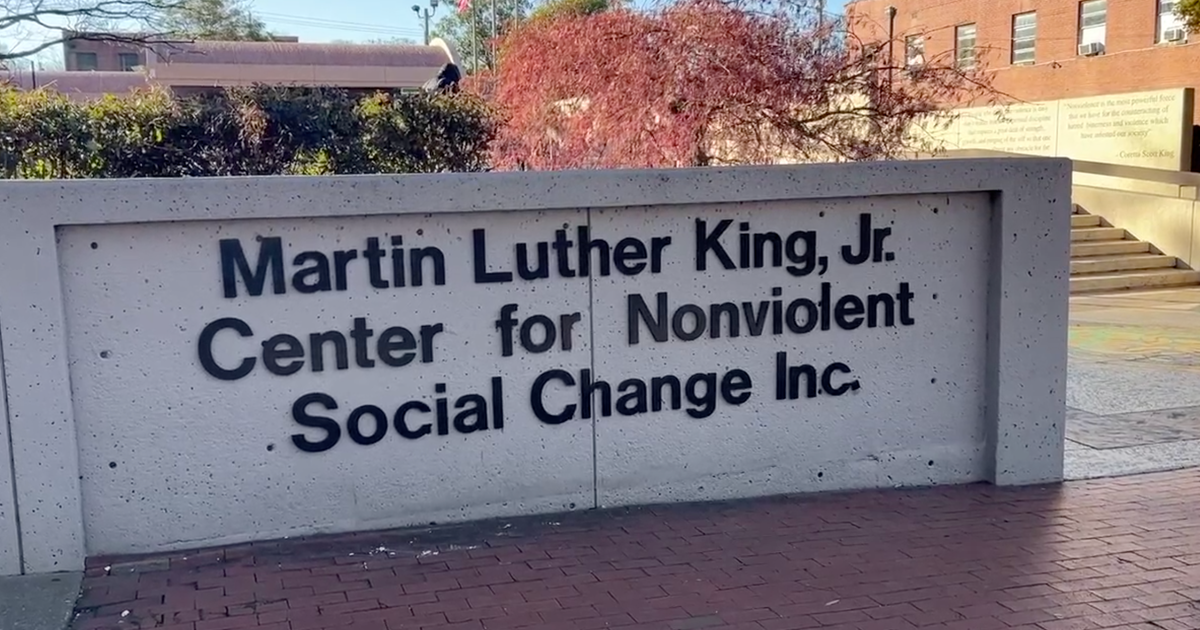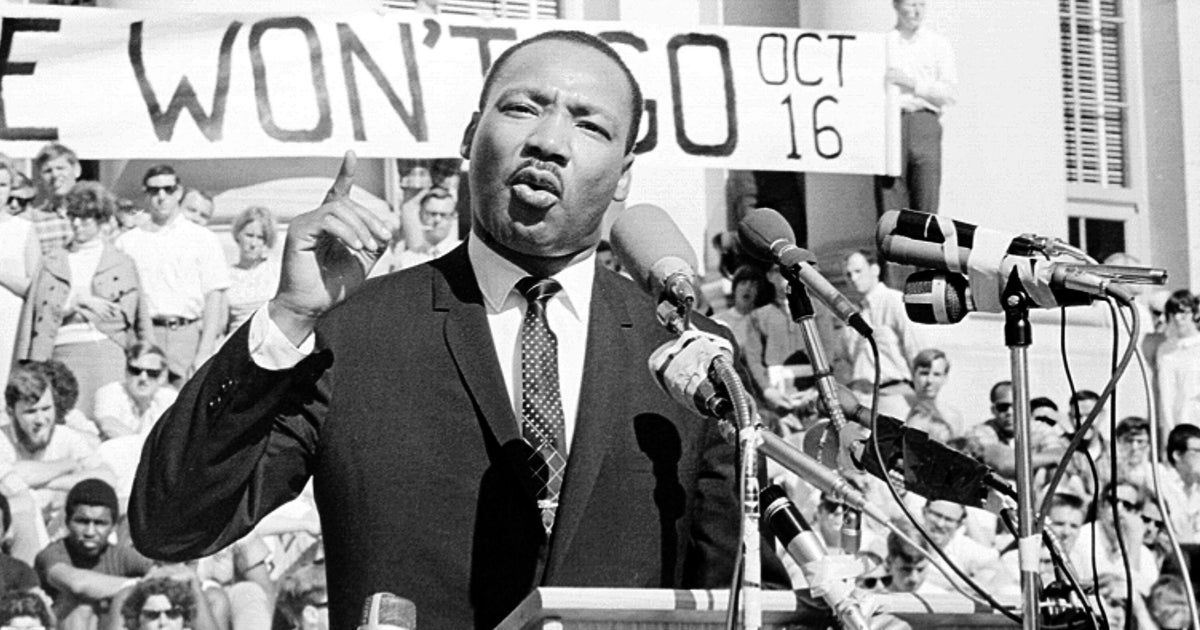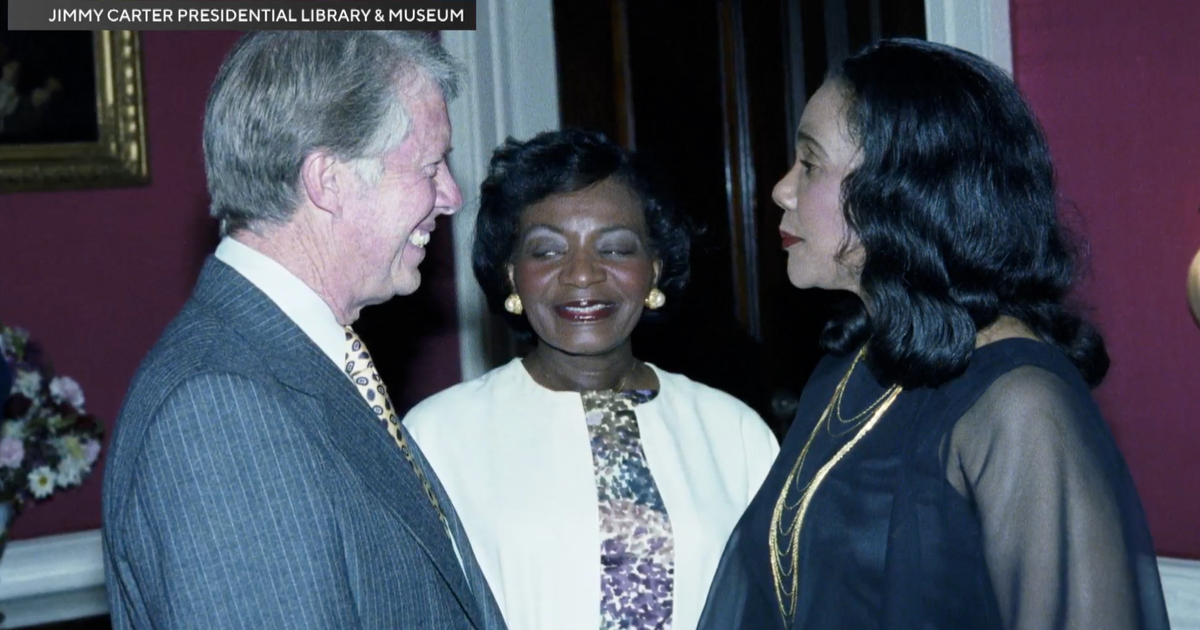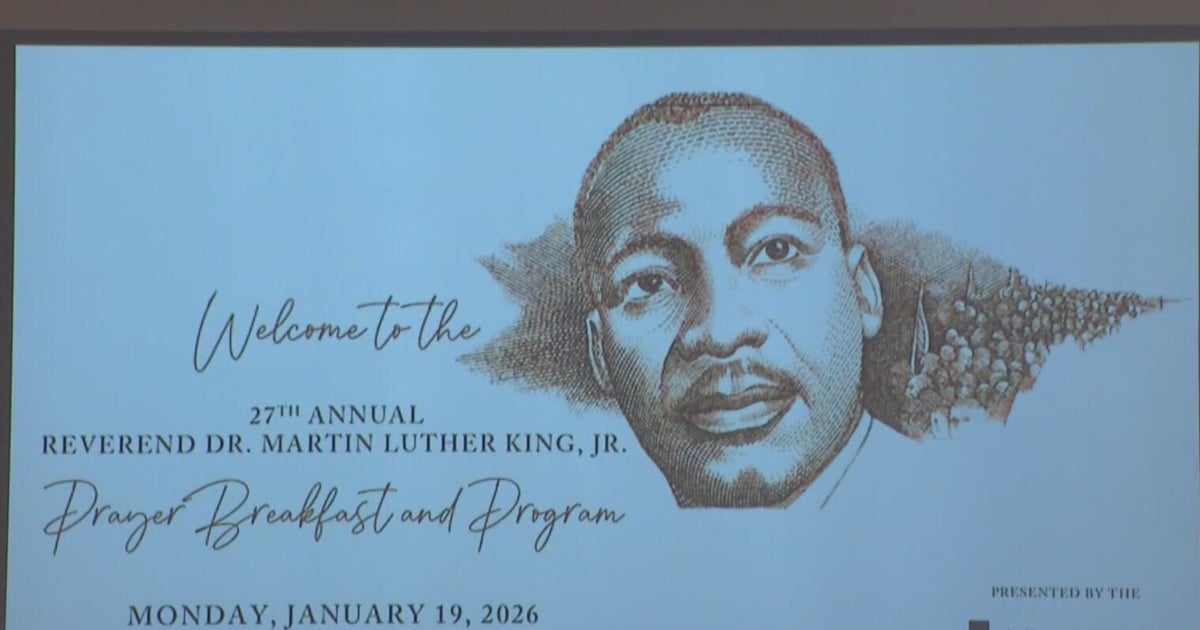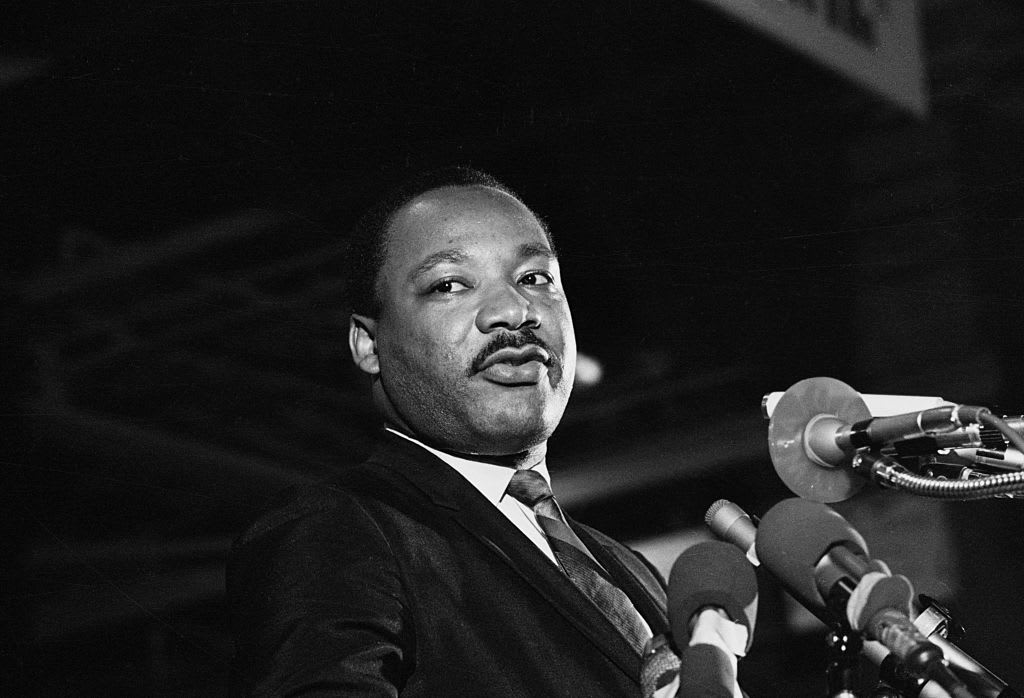Martin Luther King Jr.'s dream of equality: 50 years later, where do we stand?
Ahead of the 50th anniversary of Dr. Martin Luther King Jr.'s assassination, we asked prominent voices to share their memories and reflect on the progress toward achieving King's dream of justice and equality for all Americans. Those voices include Gen. Colin Powell, the first black secretary of state; Loretta Lynch, the first black woman to serve as attorney general; six-time NBA champion Kareem Abdul-Jabbar; California Sen. Kamala Harris, the second black female senator in U.S. history and New Orleans singer-songwriter and horn-blower, Trombone Shorty.
On what Dr. King achieved...
COLIN POWELL: "People threw me out of a hamburger joint after I came back from my first tour in Vietnam and had been injured. And all I wanted was a hamburger and they wouldn't serve me … The whole nation was carrying the burden of discrimination and Jim Crowism. It was holding blacks down but it was also holding whites down. They knew better. They knew this was wrong.
"I went back to that same hamburger joint on July 4, 1964, right after the Civil Rights Accommodation Act had been signed. And I asked for my hamburger and they said, 'Yes, sir.' And they handed me my hamburger."
LORETTA LYNCH: "People were fundamentally afraid of King's message and what it might mean for losses in their own lives … The way that people will cling to their fears as opposed to opening their hearts up to possibilities is something that can never be discounted."
KAREEM ABDUL-JABBAR: "When I met Dr. King I was involved in a summer mentoring program … There was a debate going on as to, you know, was his approach better or were other more militant approaches better? ... Really, the answer was that all people who were concerned about the issues needed to come together and deal with the issues."
SEN. KAMALA HARRIS: "He brought together preachers and rabbis. He brought together people of every walk of life, from every age and race and every geographic region of the country."
TROMBONE SHORTY: "His legacy was always about love. And that's what I try to do through my music around the world. Just bring love and unity through harmony ... Without Dr. King, I'm not sure where we would be today ... Seeing that in black and white and seeing all those people together I felt the spirit hit me ... And as I got older, I started to really understand what he meant to us."
What's still left to accomplish...
KAREEM ABDUL-JABBAR: "He achieved so much, but the goals that he identified ... We didn't get there."
LORETTA LYNCH: "We're divided by class. We're divided economically. We're still divided racially in some very, very deep and fundamental ways."
SEN. KAMALA HARRIS: "What was tragic is that his, his work was just on the verge of really pushing for the economic justice piece before he was killed. Remember it was the sanitation workers ... He was there to stand for their right to collective bargain, for their right to have a workplace that would be safe, their right to have dignified wages ... That's what his fight was before he was killed. And that is a fight that remains true today."
TROMBONE SHORTY: "I was sitting down with my grandmother and we were watching TV and some of the things that's happening in the world, she said, 'It's not as bad as it used to be, but it's the same thing' ... So for me to sit there and see her say that ... It's a hard thing."
How far we've come...
LORETTA LYNCH: "I was proud as attorney general to work with both law enforcement and community members who were facing that problem head on ... When that communication and trust breaks down and you see that happening in the case of so many instances of law enforcement violence perpetrated on the minority community, and there being no way to handle that ... No way to talk about the competing agendas there that can, in fact, be very similar."
COLIN POWELL: "We've got a lot more to do ... But I'm sitting here as a son of an immigrant family, a black kid, public school education, was able to rise to the top. And the way that was made for me was built, a large extent, by what Dr. King did by his great sacrifice ... It would've been unthinkable for me to become chairman of the Joint Chiefs of Staff or secretary of state. But the trend I see is that America is becoming a more mosaic nation."
TROMBONE SHORTY: "Dr. King inspired my music because my music has no color barriers, you know? It's just love ... And when you come to my shows, it's very diverse and it's a beautiful thing to be on stage, to be able to watch that happening, everybody getting along, even if it's for an hour and 30 minutes. You can see what Dr. King was trying to do throughout the world."
Their hopes for the future...
SEN. KAMALA HARRIS: "My dream is that we live to achieve Dr. King's purpose and that includes equality that is both about racial justice and it is about economic justice."
KAREEM ABDUL-JABBAR: "I think Americans can honor Dr. King's legacy by just having an honest look in the mirror as to what we can all do to not give racism and bigotry the opportunity to get a foothold on, on our public psyche on our institutions."
COLIN POWELL: "I hope that 50 years from now we will all be again one people, one nation."
LORETTA LYNCH: "Whether it's the Me Too movement, Black Lives Matter, the Parkland students, these youth-led movements are really a legacy of the Civil Rights Movement also. King's legacy lives on."
